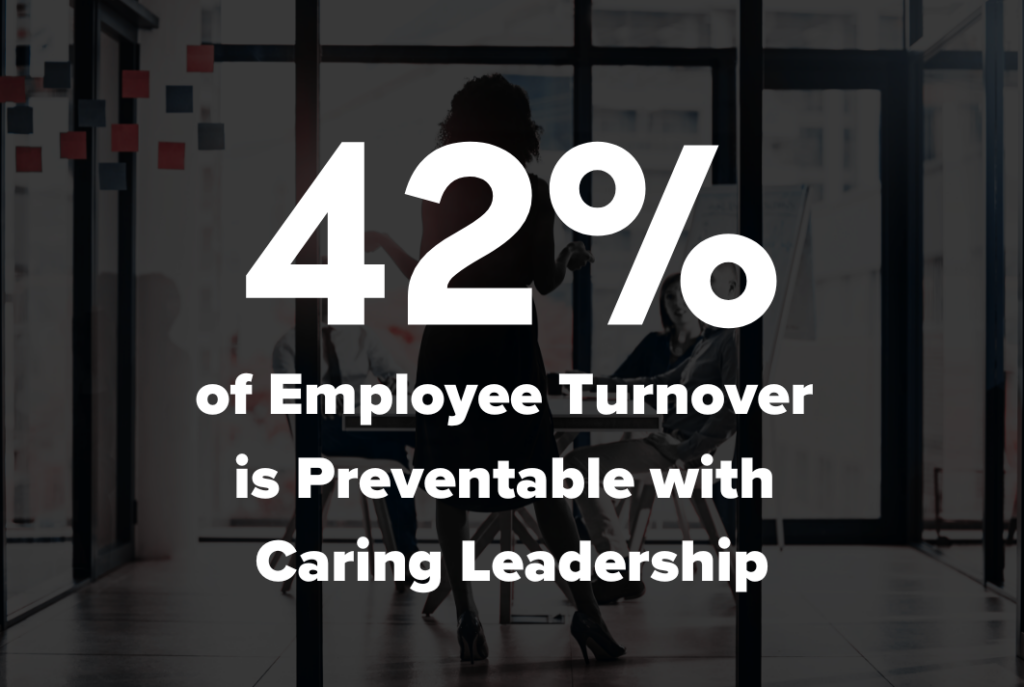
In today’s dynamic job market, employee turnover remains a significant challenge for organizations. Research by Gallup reveals that 42% of employee turnover is preventable if organizations prioritize the right conversations and leadership practices. At the Chapman Foundation for Caring Communities, we believe that a caring leadership approach focused on active listening, open communication, coaching, and recognition can substantially enhance employee retention.
The Alarming Reality of Employee Turnover
Employee turnover risk is the highest in nearly a decade, with 51% of U.S. employees watching or actively seeking a new job1. Despite stabilizing voluntary turnover rates post-Great Resignation, employees’ long-term commitment to their organizations is currently at its lowest point in nine years1.
This trend underscores an urgent need for organizations to re-evaluate their team member engagement strategies. Gallup’s findings indicate that replacing leaders and managers costs around 200% of their salary, professionals in technical roles 80%, and frontline employees 40%1. These statistics highlight the financial strain of turnover and the critical importance of retaining valuable talent through proactive engagement.
Lack of Listening and Open Communication
A common theme among voluntary leavers is the absence of meaningful conversations with their leaders before deciding to exit. Thirty-six percent of those who left did not talk to anyone before resigning, and 44% of those who did discuss their intentions did not speak to their direct supervisor1—this lack of communication points to a gap in active listening within organizations.
Listening involves understanding employees’ concerns, aspirations, and feedback. When leaders engage in regular check-ins and genuinely listen to their team members, employees feel valued and heard. This simple yet powerful practice can prevent disengagement and turnover.
Importance of Coaching and Career Development
Coaching and career development are vital aspects of employee retention. A plan for career advancement not only engages employees but also addresses one of the primary reasons they leave. In fact, fewer than three in ten employees had a conversation about their future career with their organization in the final three months before leaving1.
Effective coaching involves setting clear goals, providing feedback, and offering opportunities for professional growth. When team members see a path for advancement and receive guidance on how to achieve it, they are more likely to stay committed to the organization.
Recognition and Positive Interactions
Recognition plays a crucial role in employee satisfaction. Gallup found that about 30% of actions that could have prevented employee departures were related to compensation and benefits, while 70% were linked to daily leadership practices1. This includes positive personal interactions with leaders, addressing organizational issues, and creating opportunities for career advancement.
Leaders should regularly acknowledge employees’ contributions and show genuine concern for their well-being. Simple acts of recognition, such as verbal praise or public acknowledgment, can significantly boost morale and loyalty. Click here to learn more about recognition.
The Impact of Proactive Communication
Proactive communication is essential for building strong work relationships. Gallup’s research shows that when leaders conduct one meaningful conversation per week with each direct report, employees are four times more likely to be highly engaged1. These conversations should focus on goals, recognition, collaboration, and leveraging employees’ strengths.
Additionally, addressing organizational issues promptly can prevent frustration and disengagement. Leaders must identify and resolve friction points to maintain a healthy work environment. Click here to learn more about daily connection.
Conclusion
In summary, preventing employee turnover requires a caring leadership approach centered around listening, open communication, coaching, and recognition. By prioritizing these practices, organizations can create a supportive atmosphere where employees feel valued and motivated to stay. At the Chapman Foundation for Caring Communities, we advocate for a culture of care that retains top talent and fosters long-term organizational success.
Click here for more insights on improving employee retention and creating a caring workplace culture.